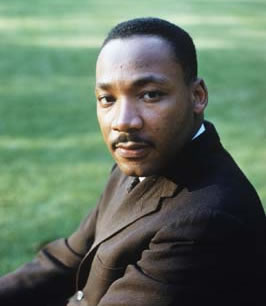 Professor Michael Nagler's lecture series about Nonviolence (PACS 164A and PACS 164B) pay extensive attention to Mahatma Gandhi, but right after that move on to Martin Luther King. Professor Jenifer Burns' History 7B, consecutively rolls through the history of the US since the civil war and allots two lectures towards the end to the civil rights movement.
Professor Michael Nagler's lecture series about Nonviolence (PACS 164A and PACS 164B) pay extensive attention to Mahatma Gandhi, but right after that move on to Martin Luther King. Professor Jenifer Burns' History 7B, consecutively rolls through the history of the US since the civil war and allots two lectures towards the end to the civil rights movement.There were two things new to me. I have no idea how new to Americans, but to me as a non-American even with a legal training (which means I knew both the Plessy case and the Brown case), there was some new insight to gain. First of all, it is the fact that the movement already began in the 1930's and that the building up to the Brown cases was carefully planned and prepared. The famous marches and the profound appearance of Dr. King in the 1960's, which I identified as The movement, was more of a climax. The second aspect is one I could have reconstructed myself, but for which I needed Jennifer Burns to be pointed at. Since the abolition of slavery, under Lincoln, the blacks tended to favor the Republican party (as Lincoln was a Republican) and this also counted for the strength of the Democrats in the south. In the 1960's it is Lyndon Johnson, who moves the Democrats into the principles of Civil Rights, which means a shift of the Black vote towards Democrats, but simultaneously, a losing of ground in the south which is an established fact today.
More American History:
Whittaker Chambers,
Scopes Trial,
American History before 1870,
The American Constitution's British roots - BTHP,
US History - from Civil War to Present.
More Nonviolence:
Non Violence readers,
Non Violence.
No comments:
Post a Comment